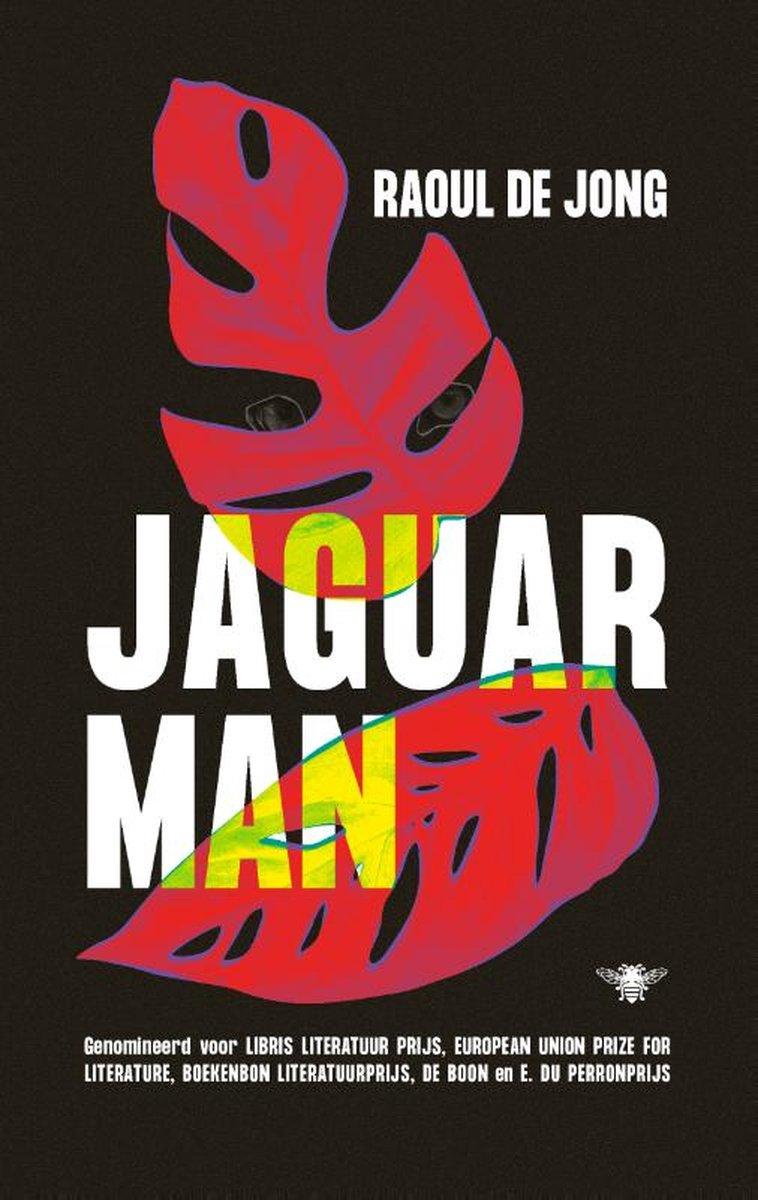Jaguarman
Raoul de Jong, the son of a Dutch mother and a Surinamese father, has never met his father until he receives an email just before his twenty-eighth birthday asking to meet. Intriguingly his father tells him about a family curse. ‘Please, son, leave it alone,’ his father urges him, but this is enough for the curious writer to do exactly the opposite. One of his ancestors, a medicine man, could transform himself into a jaguar and, gripped by this mystery, Raoul decides to investigate in Suriname.

Raoul’s account of his quest is composed of ten letters to his mysterious ancestor, the Jaguarman. To get in touch with him and his other ancestors, Raoul completes a seven-day ritual upon the advice of Winti priestess, Miss Elly Purperhart. The central questions for the Jaguarman are as follows, ‘My father said you could turn yourself into the strongest, and some say, the cruellest animal in the South American rainforest, the king of the Amazon, the jaguar. How did you do that? Who were you? Where did you come from? How did you get your strength? And why, according to my father, should I leave those powers alone?’
As a reader, you follow this investigation of the Jaguarman’s powers, and if you let yourself be carried away, you fall under his spell – no matter how rationally you begin this book. Along with the main character, you learn about the tumultuous past of the Surinamese people. The history of the former Dutch colony is one of oppression and slavery, but those who search also find a great deal of hope and vitality. Raoul is living proof: his ancestors somehow managed to survive. During this quest, in which he acquaints himself with leading Surinamese writers, thinkers and resistance heroes, he discovers how the jaguar’s power was essential for the country, and comes to understand how much everyone can learn from it.
This is a personal, idiosyncratic book written like an adventure novel, with room for magic and mystery and a hope-filled conclusion. It is also a beautiful ode to the land of his father. De Jong himself says, ‘I didn’t intend my book to be “white homework”, you could read it like that, but you would also be selling it short. You don’t have to have Surinamese roots or be the great-grandson of a plantation owner to take away something from the history of Suriname.’
“If there is one book you really need to read this year, it is 'Jaguarman': to learn something essential about uncomfortable truths, to ‘keep thinking for yourself, even when no one else does’ and to embrace your inner beauty.”
“'Jaguarman' is a surprisingly rich book. De Jong pulls you into the story, which is full of offshoots and leaps in time and thought.”
-stephan-vanfleteren.jpg&w=640&q=75)